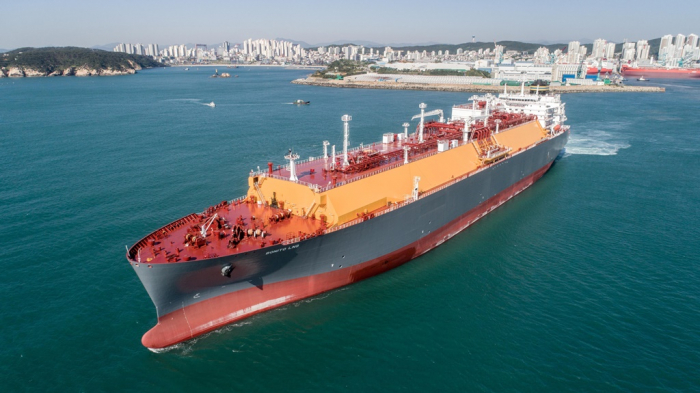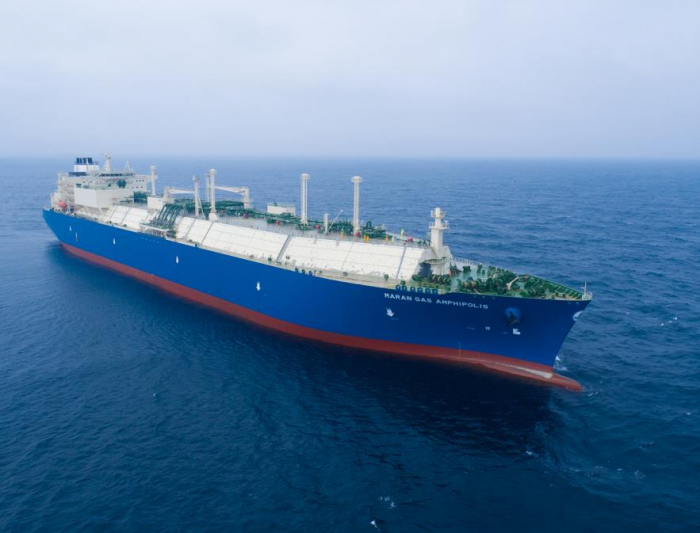Shipping & Shipbuilding
Hyundai, Daewoo race for ship orders after merger fails
Growing demand for eco-friendly vessels offsets concern over excessive competition
By Feb 04, 2022 (Gmt+09:00)
2
Min read
Most Read
LG Chem to sell water filter business to Glenwood PE for $692 million


Kyobo Life poised to buy Japan’s SBI Group-owned savings bank


KT&G eyes overseas M&A after rejecting activist fund's offer


StockX in merger talks with Naver’s online reseller Kream


Mirae Asset to be named Korea Post’s core real estate fund operator



The world’s two largest shipbuilders Hyundai Heavy Industries Group and Daewoo Shipbuilding & Marine Engineering Co. are battling it out to win ship orders after the European Commission vetoed the combination of the South Korean companies last month.
Hyundai and Daewoo are both looking to ride the industry boom given growing demand for eco-friendly ships ahead of tougher regulations on maritime emissions, industry sources said.
Korea Shipbuilding & Offshore Engineering Co. (KSOE), Hyundai Heavy Industries Group’s intermediate holding company, announced on Thursday that it won 740 billion won ($616.9 million) worth of deals to build nine vessels including two liquefied natural gas-powered roll-on/roll-off (Ro-Ro) ships, one LNG bunkering vessel and six 2,800 twenty-foot equivalent unit (TEU) container ships. Hyundai Mipo Dockyard Co., KSOE’s unit specialized in small and medium-sized ships, plans to produce those ships.
KSOE has secured a total of $3.7 billion worth of deals to build 34 ships so far this year, meeting 21.2% of its 2022 order target of $17.4 billion.
Daewoo also said it signed 1.8 trillion won worth of contracts to manufacture two very large LNG carriers and six 16,000 TEU container ships.
It has bagged a combined $2.7 billion worth of orders to build 11 ships and one offshore plant so far this year.

DIFFERENT FROM THE MID-2010s
The two companies' jostling has been in the spotlight as the market hasn't forgotten their cutthroat competition in the mid-2010s to expand market share with low price tags that cut into their earnings.
Industry sources, however, said Hyundai and Daewoo enjoyed the industry’s growth as shipping companies placed orders ahead of the International Maritime Organization’s (IMO) additional measures, which will be effective from 2023, to cut the carbon emission intensity of international shipping. Most of the ships they will build are eco-friendly vessels such as LNG carriers and ships equipped with dual-fuel engines.
Vessel prices in the latest contracts were in line with market levels. The average price of LNG carriers to be manufactured by Daewoo was $218 million, slightly higher than the $214 million average contract price for ships of the same size or model.
“Excessive competition among local shipbuilders is definitely a problem. But the industry’s robust current market conditions have offset worries about that,” said an industry source.
Write to Jung-hwan Hwang at jung@hankyung.com
Jongwoo Cheon edited this article.
More to Read
Comment 0
LOG IN



